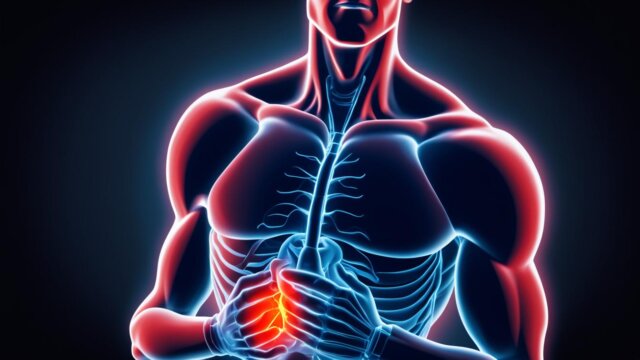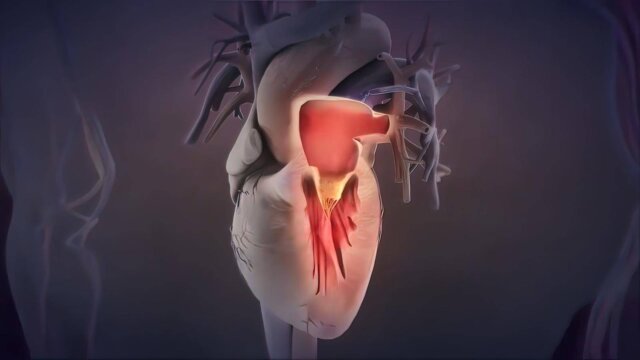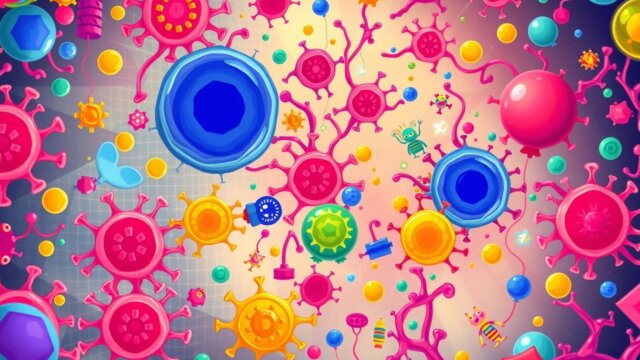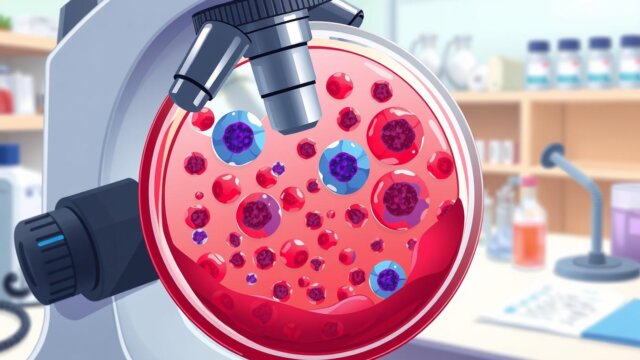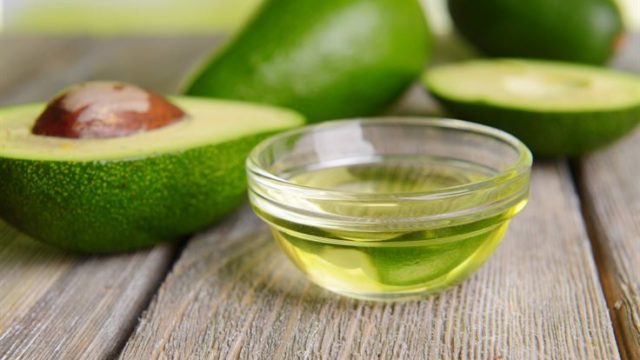FTC disclaimer: This post may contains affiliate links and we will be compensated if you click on a link and make a purchase.
Worldwide, more than 1.2 billion adults have high blood pressure. Shockingly, almost half don’t know they have it. Known as the “silent killer,” high blood pressure comes without symptoms.
It silently harms blood vessels, leading to heart disease, stroke, and kidney problems. But, a heart-healthy life can lower it. This includes preventing high blood pressure’s start, making medicines work better, and lowering danger for life-threatening diseases.
Key Takeaways
- High blood pressure is a “silent killer” that can lead to serious health complications if left untreated.
- Lifestyle changes, such as maintaining a healthy weight, exercising regularly, and following a healthy diet, can help lower blood pressure.
- Reducing sodium intake, limiting alcohol consumption, and managing stress can also contribute to better blood pressure control.
- Regular monitoring of your blood pressure at home can help you track your progress and identify any concerning changes.
- Proper medication compliance is crucial for managing high blood pressure and reducing the risk of complications.
Understanding Blood Pressure
Blood pressure is the force your blood puts on artery walls. This happens as the heart pumps blood. It’s seen as two numbers, the first high one is systolic, and the second lower one is diastolic.
What is Blood Pressure?
Systolic blood pressure is when your heart is beating. Diastolic is when your heart is resting between beats. It’s key to keep your blood pressure at healthy levels for your heart’s well-being.
Systolic and Diastolic Blood Pressure
A good range is under 120 systolic and under 80 diastolic. If it’s 120-129 systolic or under 80 diastolic, it’s a bit high. Stage 1 high blood pressure hits levels like 130-139 systolic or 80-89 diastolic. Stage 2 involves 140 or higher systolic, or 90 or higher diastolic.
Diagnosing High Blood Pressure
High blood pressure is found when it’s 130/80 mm Hg or more, over time. It’s often found during routine visits, as there might be no symptoms at first.
A hypertensive crisis is when it spikes above 180 systolic and/or above 120 diastolic. This needs quick medical help if there are other alarming signs like chest pain or shortness of breath.
Blood Pressure Category | Systolic (mm Hg) | Diastolic (mm Hg) |
|---|---|---|
Normal | Less than 120 | Less than 80 |
Elevated | 120-129 | Less than 80 |
High Blood Pressure Stage 1 | 130-139 | 80-89 |
High Blood Pressure Stage 2 | 140 or higher | 90 or higher |
Hypertensive Crisis | Higher than 180 | Higher than 120 |
Systolic pressure is a big risk for heart disease, mainly after age 50 because of stiff arteries and plaque. Diastolic pressure is important too, showing artery pressure between heartbeats.
If you’re at Stage 1, your doctor might suggest lifestyle changes first. Medication might be needed, especially if you have diabetes or kidney issues.
For Stage 2, your healthcare provider will likely prescribe medication. Always seek prompt medical care for a hypertensive crisis or if your blood pressure is extremely high for a long time.
It’s vital to check your blood pressure often and get diagnosed early. This helps manage it and lower the risk of heart problems. If you’re in the high blood pressure zones, focus on living healthy. Also, talk to your doctor about the right medicines.
Risk Factors for High Blood Pressure
High blood pressure, or hypertension, can affect anyone. But, some things can make your risk go up. Knowing these risk factors helps you take steps to prevent or handle this issue.
Age and Gender
Your blood pressure might rise as you get older. Men often face more high blood pressure than women before age 64. But after that, women are more at risk.
Race and Ethnicity
Black, Hispanic, and Asian folks, especially adults, are more likely to have high blood pressure. Black people, in particular, get high blood pressure earlier than others.
Lifestyle Factors
What you do every day affects your blood pressure. Bad eating, not moving enough, too much alcohol, and smoking can raise your risk. So can sleep apnea.
Family History and Genetics
If someone close to you has high blood pressure, you might get it too. Genes also have a big say in high blood pressure and heart issues.
Social and Economic Factors
Your money, how much you know, and past bad times can affect your high blood pressure risk. People with less money and lower schooling often face more high blood pressure.
It helps to know what can make your blood pressure go up. This way, you can do things to stop it from happening. And lower your chance of having health problems.

Lower Blood Pressure: Lifestyle Changes
Changing your habits is key to keep blood pressure in check. Aiming for a healthy heart can cut many risks, from lessening the need for pills to reducing the danger of heart issues and strokes.
Maintain a Healthy Weight
Being the right weight helps lower blood pressure. Dropping just a little can change your readings. For guys, aim to trim down if your waist is over 40 inches (102 centimeters). For gals, it’s time to slim if your waist is over 35 inches (89 centimeters).
Exercise Regularly
Moving your body often is great for your heart. Shoot for 150 minutes each week of activities like brisk walks, swims, or bike rides. This can drop high blood pressure by 5 to 8 points.
You can customize this part for variety in achieving the desired word count. Add a friendly comment here.
Follow a Healthy Diet
What you eat matters a lot. Go for foods like whole grains, fruits, veggies, and low-fat dairy. Cut back on things high in saturated fats and cholesterol. This type of diet can shave off 11 points from your blood pressure. The DASH eating plan is a top choice.
Reduce Sodium Intake
Less salt means healthier hearts. Topping your food with no more than 2,300 mg of sodium daily is a good start, or even better: 1,500 mg if a doctor says so. This single move could drop your blood pressure by 5 to 6 points.
You can customize this part for variety in achieving the desired word count. Add a friendly comment here.
Limit Alcohol Consumption
Drinking in moderation is wise. Keep it to a drink daily for ladies or two for gents to see your blood pressure go down by 4 points.

Stress Management Techniques
Chronic stress can make your blood pressure rise. To deal with stress better, try relaxation methods like deep breaths, meditation, or yoga. Also, do things you love that make you happy.
It’s important to sleep well too. Stick to a regular bedtime and keep your sleep area calm. Also, avoid things like caffeine before bed. Doing these things can help lower stress and improve your health.
Practice Relaxation Exercises
Relaxation exercises like deep breaths, meditation, and yoga are great for dealing with stress and maybe lowering your blood pressure. They trigger your body’s relaxation response, which reduces stress signs and brings calm.
Engage in Enjoyable Activities
Enjoying hobbies and fun activities can help you manage stress. Reading, gardening, or listening to music can give you a break from daily stress. Also, being with friends and family can lower your stress.
Prioritize Sleep Quality
Good sleep is key to stress management and staying healthy. Try to get 7 hours of sleep each night. Make your sleep area peaceful and free from screens and caffeine. This will help you manage stress and keep a healthy blood pressure.

Quit Smoking
Smoking cessation is key for better heart health and lower blood pressure. Smoking increases your blood pressure and heart disease risk. In just 30 minutes of quitting, your heart rate and blood pressure go back to normal.
Smokers have 3 to 15 times more harmful chemicals in their blood than non-smokers. Once you stop, the risk of heart attacks lowers after just 1 day.
If you’ve had a heart attack before, quitting can halve your risk of another. When you quit, your taste and smell cells come back fast, and your lungs get stronger by up to 10%.
By quitting, your heart disease and heart attack risk falls a lot. If you stop smoking for 5 years, you cut your chance of certain cancers in half, including cancers in the mouth and throat.
Your stroke risk can be as low as a non-smoker’s, and your lung cancer risk halves after about 5 years off cigarettes. After 5 years without smoking, risks of larynx and pancreas cancers also significantly drop.
Talk to your doctor about how to quit. There are many methods and support that can assist you.
A study found that 14 out of 33 people who smoked quit for 6 weeks and did not see a big rise in their blood pressure. Quitting can lead to gaining weight and drinking less. But, blood pressure does not go up quickly after you stop.
In a program in Taiwan, blood pressure went down for everyone after quitting smoking. Those with high blood pressure saw a greater improvement than others. Quitting smoking lowers blood pressure, especially in those already dealing with high blood pressure.
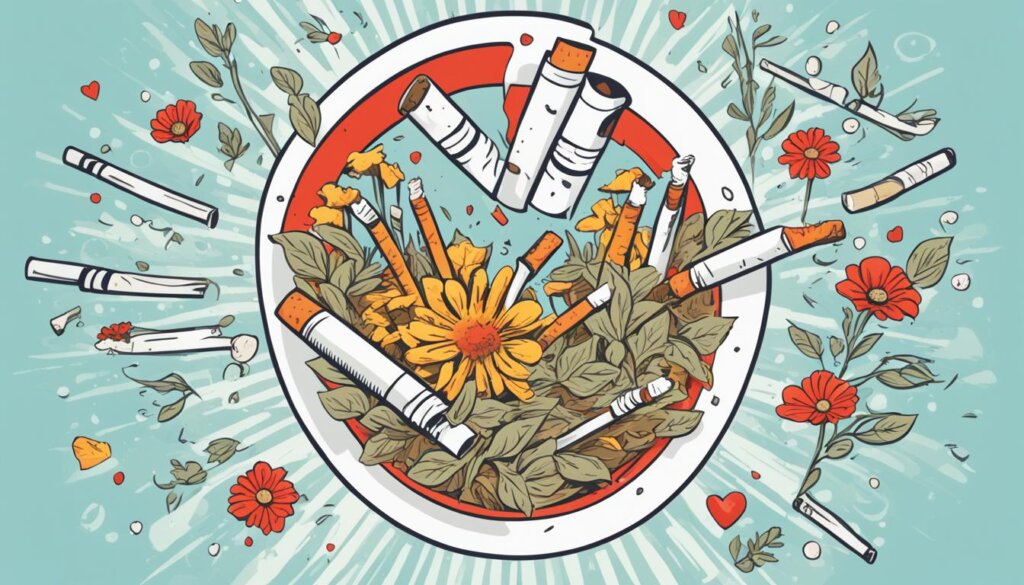
Home Blood Pressure Monitoring
Checking your blood pressure at home is very useful. It lets you track your numbers. You can see if lifestyle changes and medicines are working. It also tells you if there are any changes you should worry about.
Healthcare pros also find it helpful. They can see if the treatments are working. And it helps confirm if you have high blood pressure.
The American Heart Association and others say it’s good to monitor at home if you have high blood pressure.
Importance of Regular Monitoring
Checking your blood pressure at home may catch high numbers earlier than at the doctor’s office.
This is very important for those with high numbers or other health issues. Like if you have diabetes or kidney problems.
Seeing how your blood pressure changes at home can help with treatment decisions. It could mean changing your medicines or doses.
Doing this and making lifestyle changes could help control your blood pressure better.
Home monitoring might also mean less visits to the doctor. This could save you money on healthcare costs.
Tips for Accurate Readings
Here are some tips for getting the most accurate readings at home:
Use a good quality monitor. Measure at the same time every day. And sit quietly for five minutes before taking your reading.
It’s important to have the right cuff size. Also, your arm should be at the same level as your heart.
For the best readings, don’t smoke, drink caffeine, or exercise 30 minutes before.
If you get a high reading, check it again. If it’s still high or you feel very bad, see a doctor.
Keep a record of your readings. This helps your doctor see a bigger picture of your health.
Always talk to your doctor about monitoring at home. It’s not meant to replace normal doctor visits. But, if your blood pressure is well-controlled, it can mean fewer trips to the doctor.
Medication Compliance
If lifestyle changes don’t lower your high blood pressure, a doctor might give you blood pressure medication. It’s very important to take them as you’re told.
You should also talk to your doctor about how to take them right and any side effects you have. Understanding your prescription helps make sure your treatment works. Taking your medicine the right way can lower the risk of problems.
Understanding Your Prescription
When you get a blood pressure prescription, learn all about it. Ask your doctor about what it does, how much to take, and when to take it. This helps make sure you’re using the medicine correctly. Having a system to remember to take your medicine can make it easier to keep up.
Dealing with Side Effects
Some people might feel funny when they start taking blood pressure medicines. If you’re dizzy, tired, or your stomach is upset, let your doctor know.
They can help you deal with these issues without messing up your blood pressure numbers. Talking to your doctor is key to using your blood pressure medication the right way.
Lower Blood Pressure: Natural Remedies
Some people try natural remedies to lower blood pressure. These include herbal supplements like garlic, hibiscus, and omega-3 fatty acids. Also, alternative treatments such as acupuncture, meditation, and biofeedback might help.
Herbal Supplements
Garlic, hibiscus, and omega-3s are known to possibly lower blood pressure. Garlic can relax blood vessels and improve blood flow. This can lead to a small drop in blood pressure.
Hibiscus tea acts as a mild diuretic, which can lower blood pressure too. Omega-3s from fish oil help reduce inflammation and boost heart health. This could also lower blood pressure.
Alternative Therapies
Acupuncture, meditation, and biofeedback are other options. Acupuncture comes from China and may help your body work better. This might lower blood pressure.
Meditation and relaxation can lessen stress and pressure. Biofeedback teaches you to manage your health, including blood pressure. Some people find this helpful.
Always talk with your doctor about natural or alternative treatments. They might not work well with your medications or have side effects. Remember, these approaches shouldn’t take the place of proven high blood pressure management.
Conclusion
Keeping your blood pressure levels in check is vital for your health. You can do this by changing your lifestyle, handling stress better, keeping track of your blood pressure at home, and taking your medicine.
Also, looking into natural treatments can help. By doing these, you can lower your blood pressure. This, in turn, drops your chances of facing critical health problems.
It’s important to work with your doctor on a plan for your high blood pressure. This plan will be key to better cardiovascular health. Always staying on top of things and getting treatment quickly can stop or slow down dangerous health issues like heart disease, stroke, and kidney problems.
Taking charge of your blood pressure can really boost your health. Even small changes in how you live can make a big difference. And, having a strong healthcare team by your side guarantees you get the care you need. This is vital for staying heart-healthy over time.
In the end, keeping a close eye on your blood pressure is key for your health and happiness. Choosing habits that are good for your heart, and keeping tabs on your blood pressure at home, can go a long way.
Plus, teaming up with your healthcare provider is crucial. Together, you can find the best ways to handle your high blood pressure. This way, you lower the danger of facing big cardiovascular problems.
FAQ
What is high blood pressure and why is it a concern?
High blood pressure, also called hypertension, is often silent. It damages blood vessels, leading to serious issues.
How is blood pressure measured and what are normal levels?
Blood pressure has two measures. The first, systolic, checks pressure during heartbeats. The second, diastolic, looks at pressure while your heart rests.
If your blood pressure stays at or above 130/80 mm Hg, it’s high.
What factors can increase my risk of high blood pressure?
Many things can raise your risk. These include your age, gender, and lifestyle. Family history, genetics, and social/economic factors also play a role.
How can I lower my blood pressure through lifestyle changes?
You can make a big difference with simple steps. Keeping a healthy weight, regular exercise, and a good diet are key. Also, cut back on salt and limit alcohol.
How can I manage stress to help lower my blood pressure?
To handle stress, try relaxation exercises. Things like deep breathing, meditation, or yoga can help. Enjoy fun hobbies, and make sure to get enough sleep. These can all lower stress levels.
Why is it important to quit smoking if I have high blood pressure?
Smoking is bad for your blood pressure and heart. Stopping smoking can improve your heart health and lower blood pressure.
How can regularly monitoring my blood pressure at home help me manage it?
Checking your blood pressure at home is helpful. It allows you to track changes. This way, you can see if your lifestyle changes or medicine are working.
Why is it important to take blood pressure medications as directed?
Medications may be needed if lifestyle changes don’t work alone. Taking them as your doctor says is crucial. It helps to control your blood pressure and to avoid side effects.
Can natural remedies help lower blood pressure?
Some people turn to natural options, like herbs, to lower blood pressure. But always talk to your doctor first. They should know about anything you’re taking to make sure it’s safe.

